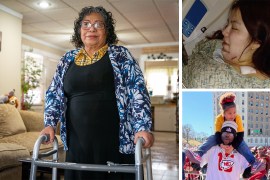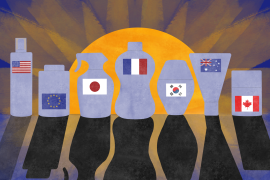Coalition Launches National Campaign to Reduce Risk of Bloodborne Disease Infection From Improperly Disposed Needles
The Coalition for Safe Community Needle Disposal, in conjunction with the American Medical Association, the American Diabetes Association, the American Association of Diabetes Educators, the American Pharmaceutical Association, the Association of State and Territorial Health Officials and the National Alliance of State and Territorial AIDS Directors, has issued a "national call to action" to health care providers and administrators to "initiate new safe needle disposal practices" to reduce the risk of transmitting bloodborne pathogens such as HIV and hepatitis B and C, according to a press release. About eight million Americans -- 3% of the U.S. population -- use syringes at home, and that number is expected to increase as more people are diagnosed with diabetes and other chronic illnesses that require self-administration of injectable medicines. Most of those needles are discarded and eventually make their way into the solid waste system, where they "pose a grave health risk" to anyone who may come into contact with them, the release states. To reduce that risk, the coalition, with the support of the other organizations, will work with federal, state and local policy makers and individuals to develop guidelines for safe, "locally tailored" disposal alternatives that are accessible, affordable, confidential, distinct, well-publicized, inclusive and supported by the community. Such programs may take the form of community drop-off sites, needle-exchange programs, municipal waste pick-up programs and mailback programs (Coalition for Safe Community Needle Disposal release, 8/20).
This is part of the Morning Briefing, a summary of health policy coverage from major news organizations. Sign up for an email subscription.





